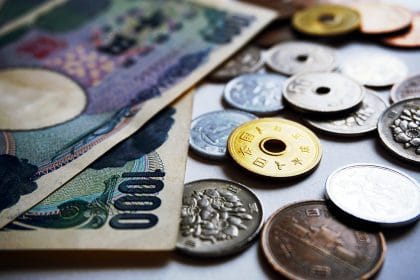Bybit’s evolution into a global powerhouse that ships new products at a dizzying rate has been a gradual one, but it’s picking up pace.
Bybit has reiterated its commitment to the Asian crypto market with the largest expansion of its fiat gateway to date. 20 new currencies have been added to Bybit Fiat Gateway including the South Korean won and Japanese yen, as well as Vietnamese language support, making it easier for Asian traders to interact with the derivatives exchange. Meanwhile, Bybit’s World Series of Trading (WSOT) continues to capture attention as the event, which boasts over a $1 million prize pool, nears its climax.
Bybit Adds JPY and KRW Direct Deposits
MoonPay is the payment partner Bybit has used to implement its fiat gateway, which debuted in June. The ability for traders to directly deposit funds using their local currency is a godsend for getting funds into an exchange account quickly when the market goes parabolic. While Bitcoin is still teasing as to whether it’s entering a new bullish phase, its ascent to $12K, followed by a gentle retreat to $11.5K territory, augurs well.
When BTC gathers pace and teases towards new all-time highs, the FOMO from traders will be intense. Exchanges with fiat gateways in place can expect an influx of money from traders who have been sitting on the sidelines, waiting for the right time to re-enter the market. Many derivatives exchanges, including former market leader BitMEX, still lack this ability.
BitMEX’s decision to introduce KYC has provided a boost to Bybit, which has welcomed disaffected traders with open arms. These headwinds have given the derivatives exchange momentum that it’s now seeking to build on to grow its market share, starting with the lucrative Asian market. Western exchanges have struggled to gain a foothold in crypto-savvy Asian nations such as South Korea, Japan, and Vietnam, having been hampered by a lack of localized knowledge and inadequate support for local currencies.
Asian Traders Flirt with DEXs but Still Favor CEXs
The Uniswap mania that’s gripped defi traders has yet to filter through to the Asian market, where CEXs hold sway. Platforms such as Binance, Huobi, and Bybit capture a large slice of the market within the region, leaving the long tail of local exchanges to cater to the rest of the demand. There are signs that Asian traders are starting to experiment with defi, which is now blooming on other blockchains than Ethereum.
The launch of TRON’s JustSwap on August 18, which pulled in $10M in volume in its first day, shows there is demand for decentralized trading options on other chains. For derivatives trading, however, where low fees and high volume are imperative, CEXs such as Bybit and Deribit dominate.
Bybit’s evolution into a global powerhouse that ships new products at a dizzying rate has been a gradual one, but it’s picking up pace. Only Binance can claim to have rolled out more products in the last quarter than Bybit, which was founded by CEO Ben Zhou in 2018. Products such as mutual insurance for options traders, integrated crypto swaps, and an enhanced trading engine have earned Bybit support from pro and semi-pro traders who like their leverage high and their order execution lightning fast.
Having obtained a diploma in Intercultural Communication, Julia continued her studies taking a Master’s degree in Economics and Management. Becoming captured by innovative technologies, Julia turned passionate about exploring emerging techs believing in their ability to transform all spheres of our life.




